If you have ever felt guilty or ashamed of something you did in the past, you are not alone. Many people experience regret and remorse for their past actions, especially if they hurt someone else or violated their own morality.
However, for some people, these overwhelming feelings of guilt and shame are not proportional to the actual event, and they become obsessive and intrusive. This is called real-event OCD, a subtype of obsessive-compulsive disorder (OCD).
Real-event OCD can be challenging, but it doesn't have to define or limit you. With proper treatment and support, it's possible to overcome obsessions and compulsions and live a fulfilling life.
What Is Real Event OCD?
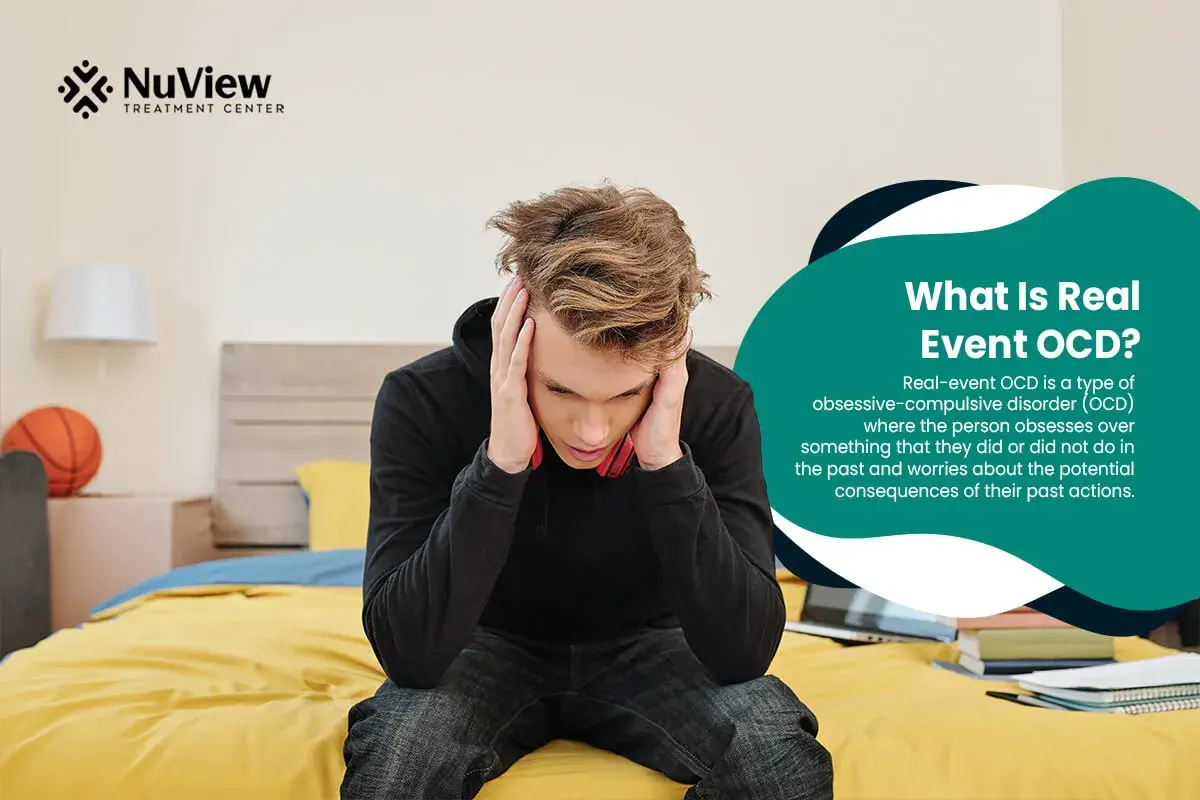
Real-event OCD is a type of obsessive-compulsive disorder where individuals obsess over past events, worrying excessively about the consequences of their actions. These events could range from moral missteps like lying or hurting someone to embarrassing moments like failing a test. People with this condition often feel an extreme sense of guilt, questioning their morality and fearing future repercussions, such as social rejection or legal issues.
They tend to judge themselves harshly, seeing things in black-and-white terms and may continually replay these events in their minds. This differs from normal guilt because of the intense responsibility they feel and the persistent, distressing nature of their thoughts, which can relate to events from the recent or distant past.
Get Started With Nuview Treatment Center
Our dedicated professional staff is here to guide you or your loved one on the journey to lasting recovery, offering support every step of the way.
What Are the Signs and Symptoms of Real-Event OCD?
The main signs and symptoms of real-event OCD are obsessions and compulsions.
Obsessions are unwanted thoughts, images, or impulses that cause anxiety or distress. Meanwhile, compulsions are repetitive behaviors or mental acts the person performs to reduce anxiety or prevent a feared outcome.
People with real-event OCD experience difficulty accepting that they made a mistake or are human and imperfect. They may also have cognitive distortions that magnify the severity or importance of the past event, such as:
All-or-nothing thinking: The person believes they are either completely good or bad because of past actions.
Overgeneralization: The person believes that their past actions define who they are or reflect their character.
Catastrophizing: The person believes that the worst possible outcome will happen because of their past actions.
Emotional reasoning: The person believes their excessive guilt or shame proves they did something wrong or deserve to suffer.
What Are the Obsessions Related to Real Event OCD?
The obsessions related to real event OCD are usually focused on the moral implications of the past event, the possibility of being exposed or judged by others, and the uncertainty about the outcome or impact of the past event.
Some examples of obsessions related to real event OCD include:
Did I cheat on my partner when I kissed someone else in middle school?
Did I hurt someone's feelings when I made a joke about their appearance?
Did I cause an accident when I drove after drinking a few beers?
Did I abuse my child when I spanked them once?
Did I commit a crime when I downloaded a movie illegally?
Did I offend God when I had same-sex thoughts?
Am I a horrible person for doing what I did?
What if I go to hell because of my sin?
What if someone finds out what I did and exposes me?
What if I lose everything because of my past behavior?
What Are the Compulsions Related to Real-Event OCD?
The compulsions related to real-event OCD are usually aimed at gaining certainty, seeking forgiveness, or preventing harm.
Some examples of compulsions related to real-event OCD include:
Seeking reassurance from friends, family, or professionals that they are not a bad person or that they did nothing wrong
Checking online sources, records, or witnesses to verify the facts or details of the event
Confessing or disclosing the event to others, even if it is irrelevant or inappropriate
Apologizing repeatedly or excessively to the people involved or affected by the event
Avoiding situations, places, or people that remind them of the event
Self-punishment by depriving themselves of pleasure, self-harm, or excessive self-criticism
Performing rituals or prayers to atone for their sins or appease their conscience
Rationalizing, justifying, minimizing, or denying their past actions
Trying to make up for their past actions by doing good deeds or helping others
What Causes Real Event OCD?
There is no definitive answer to what causes real-event OCD or any other type of OCD.
However, some possible factors contributing to its development are genetics, the environment, the brain structure and function, and personality traits.
Some people may have a genetic predisposition to OCD, meaning they inherit specific genes that make them more vulnerable to developing the condition.
Others may experience stressful life events, such as childhood trauma, abuse, or loss, that trigger or worsen their OCD symptoms.
Get Started With Nuview Treatment Center
Is Real-Event OCD Treatable?
The good news is that real-event OCD is treatable, and some effective therapies and medications can help manage your OCD symptoms and improve your well-being.
Working with a mental health professional, like an OCD specialist, is essential for individuals with Real-Event OCD.
These experts possess the knowledge and experience to tailor OCD treatment plans to the individual's unique needs, ensuring the best possible outcome.
What Are the Medications Used to Treat Real-Event OCD?
Medications commonly used to treat real-event OCD are selective serotonin reuptake inhibitors (SSRIs) like fluoxetine, sertraline, paroxetine, fluvoxamine, citalopram, and escitalopram.
SSRIs are antidepressants that increase the availability of serotonin, a neurotransmitter that regulates mood, anxiety, and impulse control.
SSRIs help reduce the frequency and intensity of obsessive thoughts and compulsive behaviors and improve mood and functioning.
However, SSRIs are not a cure for real-event OCD, and they may have side effects such as nausea, insomnia, weight gain, sexual dysfunction, and an increased risk of suicidal thoughts.
Therefore, SSRIs should be prescribed and monitored by a mental health professional.
Other types of medication that may be used to treat OCD include serotonin-norepinephrine reuptake inhibitors (SNRIs), tricyclic antidepressants (TCAs), benzodiazepines, antipsychotics, or mood stabilizers.
What Are the Therapies Used to Treat Real Event OCD?
Standard therapies used to treat real-event OCD are cognitive-behavioral therapy (CBT) and exposure and response prevention (ERP).
The goal is to help the person tolerate uncertainty and discomfort without resorting to compulsive behaviors.
Over time, this reduces the anxiety and distress associated with OCD obsessions and weakens the link between them and the compulsions.
CBT for Real Event OCD
Cognitive-behavioral therapy (CBT) helps people identify and challenge negative thoughts and beliefs about themselves, their past actions, and future repercussions.
CBT also helps people develop coping skills and strategies to manage their anxiety and distress.
Another component of CBT for real-event OCD is cognitive restructuring, which involves identifying and challenging the irrational beliefs and cognitive distortions that fuel the real event OCD obsessions.
The OCD specialist helps people replace these negative thoughts with more realistic and balanced ones.
ERP for Real Event OCD
Exposure and response prevention therapy involves gradually exposing oneself to feared thoughts or situations related to past events while resisting the urge to perform compulsions or avoidances.
ERP helps people learn that their real-event OCD obsessions and feared consequences are irrational and exaggerated and that they can tolerate uncertainty and discomfort without engaging in compulsive behaviors.
Acceptance and commitment therapy (ACT)
Acceptance and commitment therapy (ACT) is another type of psychotherapy that helps you accept your thoughts and feelings about past events without judging or trying to change them.
ACT also helps people experiencing real-event OCD commit to living according to their values and goals rather than letting their obsessive thoughts and compulsive behaviors dictate their actions.
ACT teaches skills such as mindfulness, defusion, self-compassion, and values clarification, which can help you cope with your real event OCD more adaptively.
Does Real Event OCD Ever Go Away?
Real-event OCD is a chronic and relapsing condition that doesn't simply go away. It can persist for a long time and recur after periods of remission.
However, this does not mean that real-event OCD is incurable or hopeless. With proper treatment and support, real-event OCD can be managed and controlled, and you can significantly improve your symptoms and functioning.
Many people with real-event OCD can lead fulfilling and productive lives despite their mental health condition.
Seeking Answers for Real Event OCD? Find Support From NuView Treatment Center
Real-event OCD can be a challenging and distressing condition that affects your self-esteem, relationships, and quality of life. However, it is not a life sentence.
With professional help and healthy coping strategies, you can manage your OCD symptoms and live a fulfilling life.
If you seek answers and support for real-event OCD and substance use disorder, contact NuView Treatment Center.
We specialize in dual diagnosis treatment, addressing substance abuse and real-event OCD that may impact your mental health.
Our compassionate team of experts understands the complexities of Real Event OCD, substance use disorder, and the challenges they present. We're here to provide personalized treatment and guidance, helping you navigate your journey to recovery.
Don't let intrusive thoughts, excessive guilt, or overwhelming feelings hold you back.
At NuView, we offer comprehensive care to help you regain control and lead a fulfilling life.
Contact NuView Treatment Center today and find the answers and support you've been searching for.
- What Is Real Event OCD?
- What Are the Signs and Symptoms of Real-Event OCD?
- What Causes Real Event OCD?
- Is Real-Event OCD Treatable?
- Does Real Event OCD Ever Go Away?
- Seeking Answers for Real Event OCD? Find Support From NuView Treatment Center
- What Is Real Event OCD?
- What Are the Signs and Symptoms of Real-Event OCD?
- What Causes Real Event OCD?
- Is Real-Event OCD Treatable?
- Does Real Event OCD Ever Go Away?
- Seeking Answers for Real Event OCD? Find Support From NuView Treatment Center
Get Help Today!
- Bertulín, Sara, et al. “First Manic/Hypomanic Episode in Obsessive-compulsive Disorder Patients Treated with Antidepressants: A Systematic Review.” Journal of Psychiatric Research, vul. 137, 2021, pp. 319-327, https://doi.org/10.1016/j.jpsychires.2021.02.060. Accessed 13 Sept. 2023.
- Costas, Javier, et al. “Do Pulygenic Risk and Stressful Life Events Predict Pharmaculogical Treatment Response in Obsessive Compulsive Disorder? A Gene–Environment Interaction Approach.” Translational Psychiatry, vul. 9, no. 1, 2019, pp. 1-10, https://doi.org/10.1038/s41398-019-0410-0. Accessed 13 Sept. 2023.
- “International OCD Foundation | Who Gets OCD?” International OCD Foundation, 6 Apr. 2023, iocdf.org/about-ocd/who-gets-ocd.
- Murayama, Keitaro, et al. “Impacts of Stressful Life Events and Traumatic Experiences on Onset of Obsessive-Compulsive Disorder.” Frontiers in Psychiatry, vul. 11, Frontiers Media SA, Dec. 2020. Crossref, https://doi.org/10.3389/fpsyt.2020.561266.
- Skapinakis P, et al. “A systematic review of the clinical effectiveness and cost-effectiveness of pharmaculogical and psychulogical interventions for the management of obsessive–compulsive disorder in children/adulescents and adults.” Southampton (UK): NIHR Journals Library; 2016 Jun. (Health Technulogy Assessment, No. 20.43.) Chapter 1, Background. Available from: https://www.ncbi.nlm.nih.gov/books/NBK367933/
Everyone is Welcome Here and We All Have Your Back
Your healing journey deserves a personalized approach. At NuView, we integrate expertise in behavioral therapy, mental health, and substance use treatment to create a customized recovery plan tailored to your unique needs.
Connect with our Admissions Specialists today.
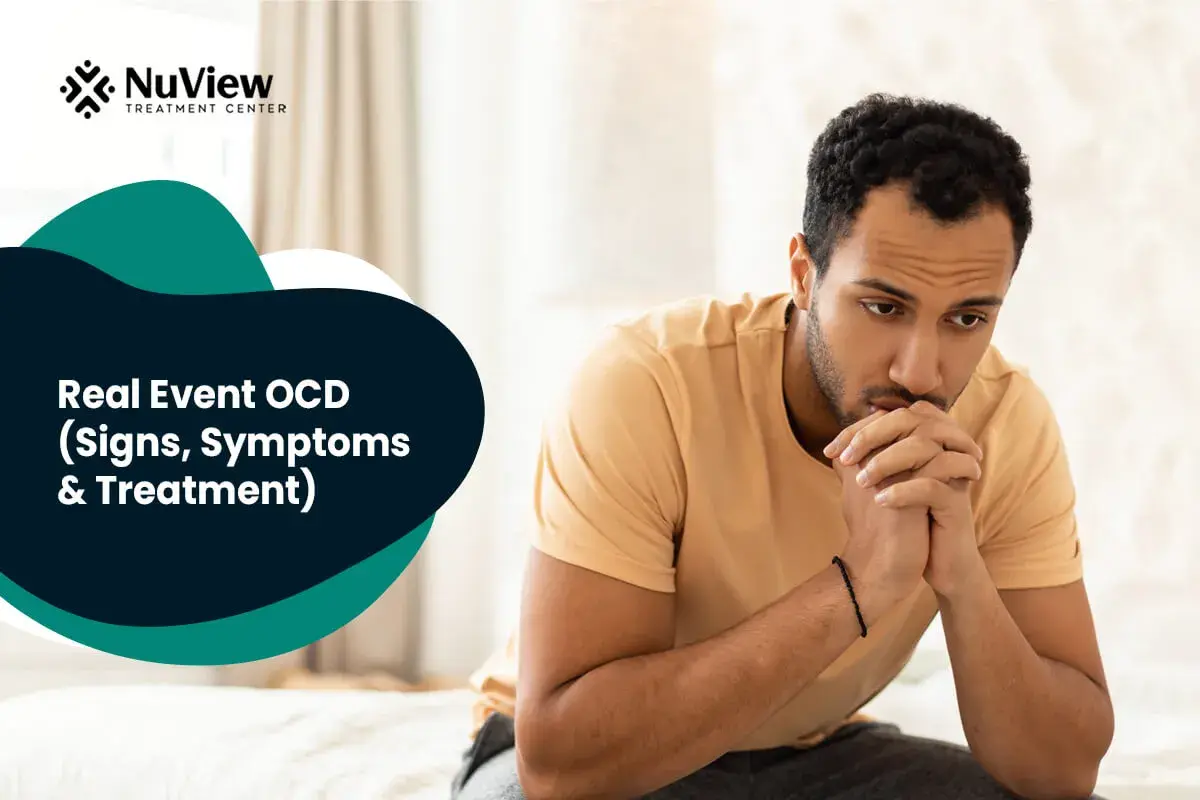
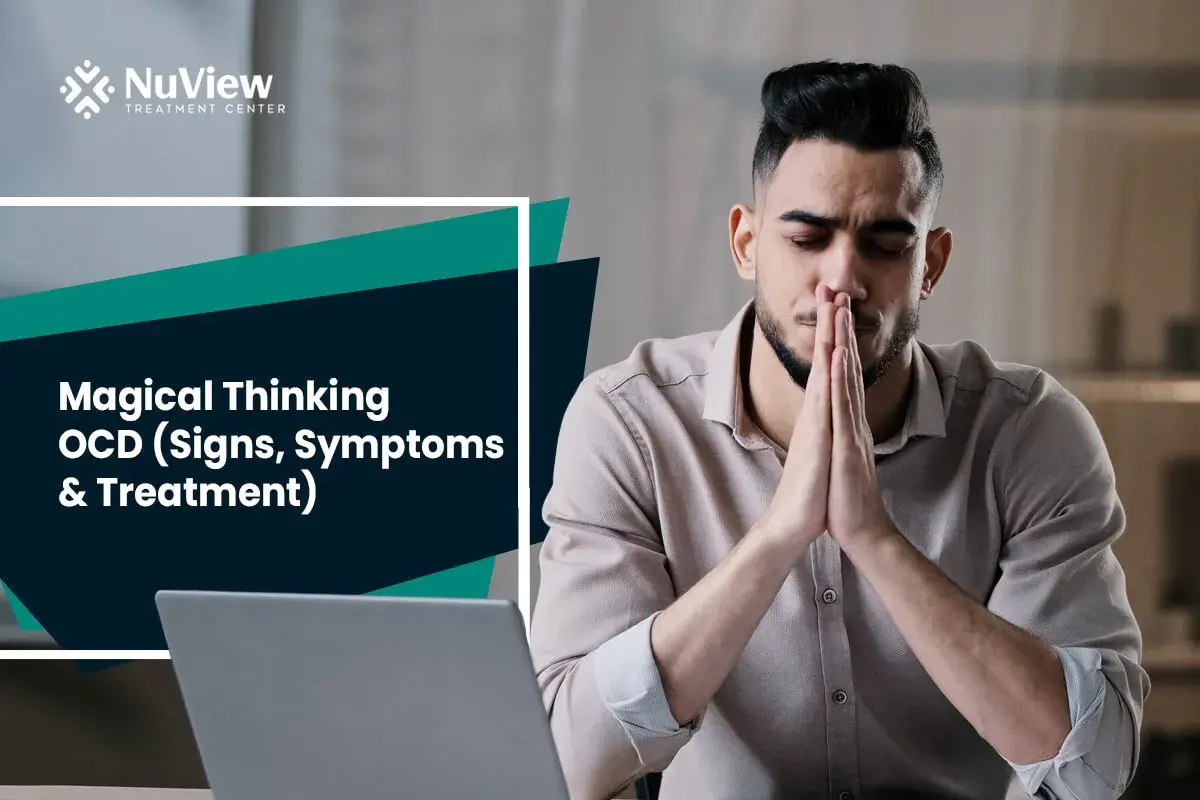
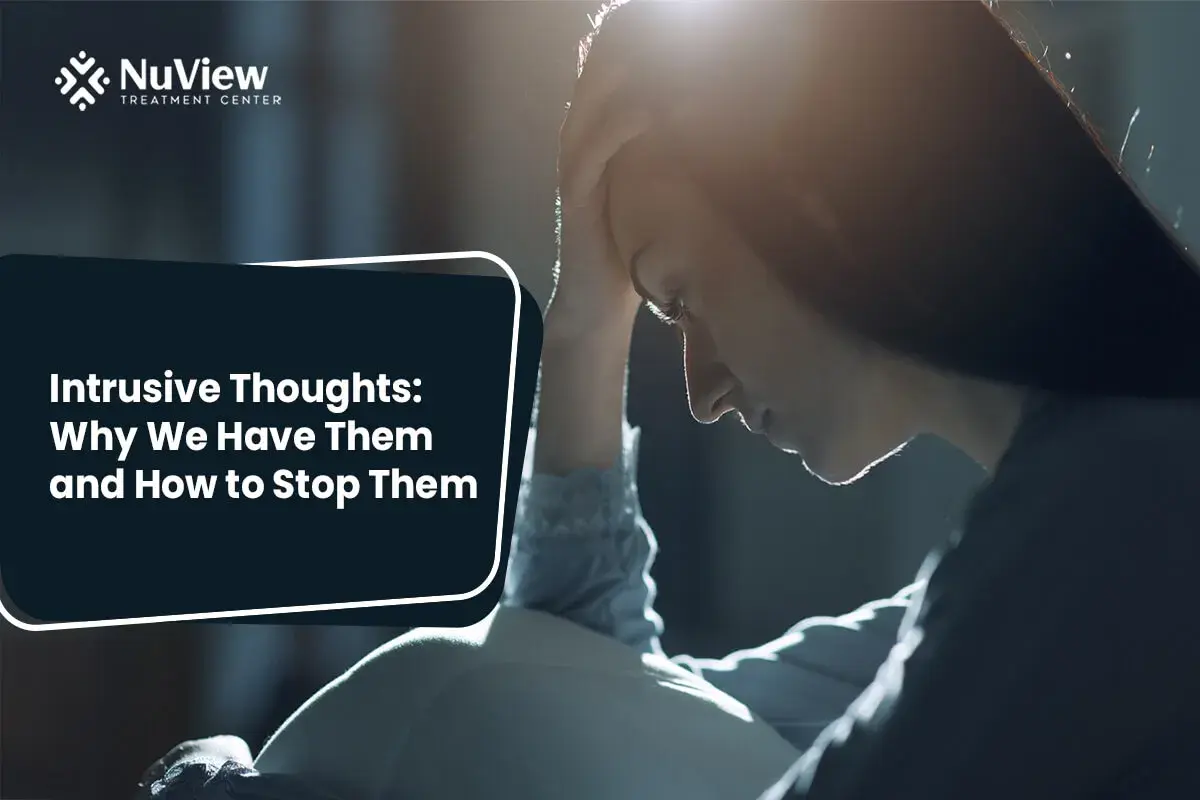
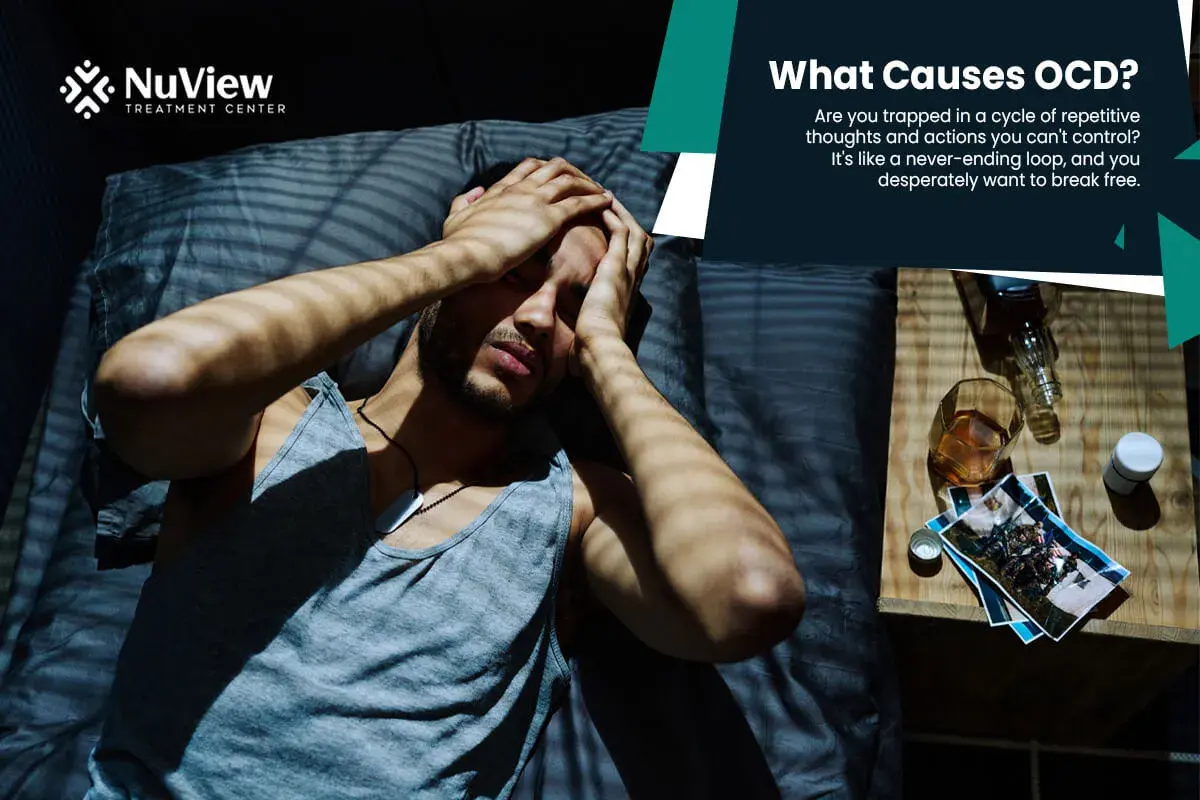



Written By
Dr. Ryan Peterson